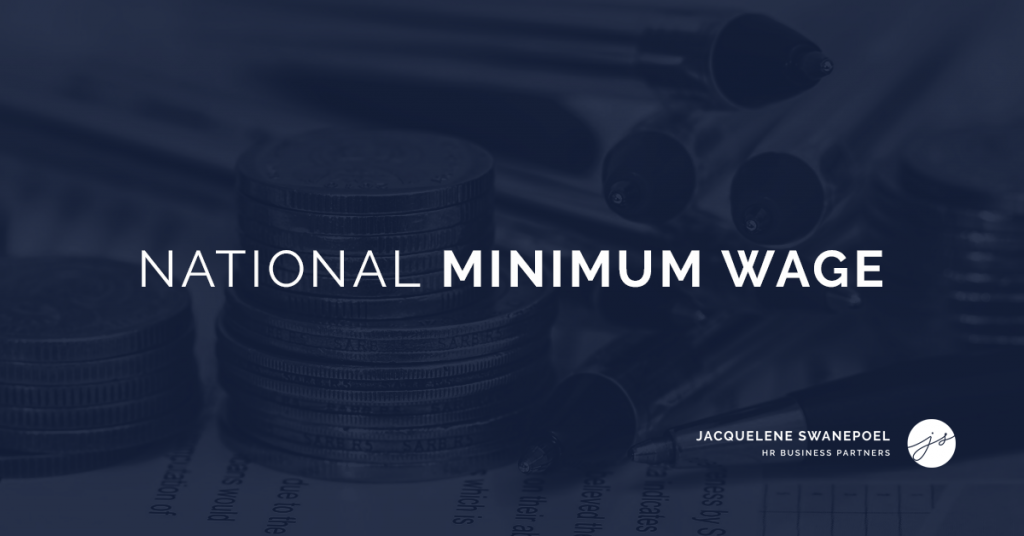
National Minimum Wage
The National Minimum Wage Commission (NMWC) made a recommendation to the Minister of Employment and Labour to increase the current national minimum wage with effect from 01 March 2021.
The National Minimum Wage Commission (NMWC) made a recommendation to the Minister of Employment and Labour to increase the current national minimum wage with effect from 01 March 2021.
Despite the weak state of the South African economy, as well as the impact of the Coronavirus (COVID-19) and negative effect of the lockdown on employers’ financial position, employers must continue to comply with current legislation with regards to industry specific minimum wages. Many low-income workers also find it difficult to survive in the current economic circumstances, which raises questions around the fairness of the proposed minimum wage.

Minimum wages have been defined as “the minimum amount of remuneration that an employer is required to pay” or “the lowest wage permitted by law” for the work performed during a given period, which cannot be reduced by collective agreement or an individual contract. This definition refers to the binding nature of minimum wages, regardless of the method of fixing them.
The purpose of the South Africa national minimum wage is to advance economic development and social justice by improving the wages of lowest paid workers; protecting workers from unreasonably low wages; preserving the value of the national minimum wage; promoting collective bargaining; and supporting economic policy, which has been set in the National Minimum Wage Act (9 of 2018).
The act provides that every worker, except those specifically excluded, is entitled to at least the minimum wage. Employers are not permitted to pay wages that are below the minimum wage and the national minimum wage cannot be reduced by contract, collective agreement, or law. The national minimum wage constitutes a term of the worker’s contract except to the extent that the contract provides for a more favourable wage. Finally, it is an unfair labour practice for an employer to unilaterally alter hours of work or other conditions of employment in implementing the national minimum wage.

The current national minimum wage is R20.76 for each ordinary hour worked, with the following exceptions:
- farm workers (including a domestic worker who works in a home on a farm or forestry environment and a security guard on a farm or other agricultural premises)
- domestic workers
- workers employed on an expanded public works programme
- workers who have concluded learnership agreements contemplated in section 17 of the Skills Development Act are entitled to the allowances contained in Schedule 2 of the NMW Act.
Farm, Forestry and Domestic Sectors will be brought up to 100% of the National Minimum Wage level by 2021, pending research by the National Minimum Wage Commission on this timeframe.
The NMWC’s recommendation is to link the increase of the national minimum wage to the consumer price index (CPI) plus 1,5%. The CPI as of September 2020 was 3,0% and the NMWC submitted that the CPI will likely be 2,5% – 3,0% in January 2021.
The national minimum wage increase is consequently calculated at 4,5% and entails an increase of the current national minimum wage of R20.76 per hour to R21.69 per hour.

